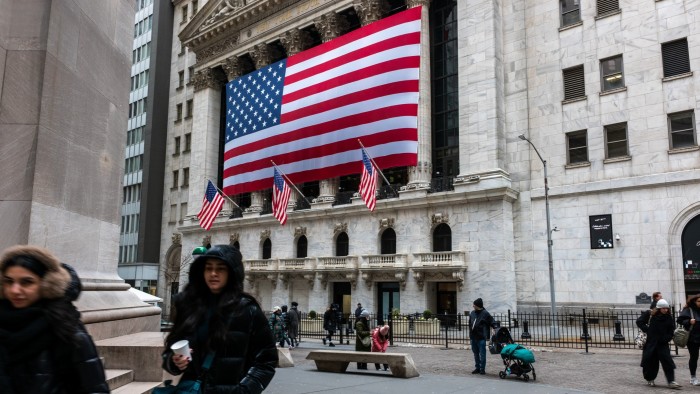[ad_1]
Unlock the Editor’s Digest for free
Roula Khalaf, Editor of the FT, selects her favourite stories in this weekly newsletter.
Politicians on both sides of the Atlantic are hell-bent on steering more pension money into private markets. The Trump administration is considering an order that would open up American employees access to private markets through their 401k pension plans. This would give Main Street an entrée into a high risk adventure playground that has hitherto been the preserve of Wall Street and big professional investors.
Continental European regulators have been relaxing liquidity rules and price caps in defined contribution pension schemes. And in the UK, chancellor Rachel Reeves has corralled asset owners and managers overseeing around 90 per cent of active savers’ defined contribution (DC) pensions to invest 10 per cent of their portfolios in infrastructure, property and private equity. Half the money will be ringfenced for the UK. If the signatories fail to meet their voluntary targets ministers may make the policy mandatory.
Let us pause, though, to raise a quizzical eyebrow around the current private market hype. In the US the potential popularisation of private markets looks suspiciously like a friendly Trumpian gesture to Wall Street friends. In fairness to the Europeans, though, their thrust — using private markets to boost economic growth and enhance retirement incomes — is well intentioned.
Public markets have been shrinking while private equity and credit have ballooned. Companies stay private for longer than ever before. With easy access to private capital, many see no need to go public.
DC scheme members have close to 40 pre-retirement years in which liquidity, the ability to buy and sell easily, is an unnecessary luxury. Yet the default options that most adopt invest mainly in quoted assets, thereby throwing away the opportunity to reap an illiquidity premium in private investments.
Private credit has also grown spectacularly. Advocates trumpet its all-weather attributes: regular cash flow, solid collateral, first lien status that gives priority as a creditor. Much of the growth reflects the regulatory constraints holding back banks since the financial crisis of 2007-09. This encourages regulatory arbitrage, with banks providing the majority of non-banks’ funding needs. Private credit in turn finances burgeoning buyouts.
The icing on the case for investors is that private markets offer diversification which reduces portfolio risk. Yet there are snags. Allison Herren Lee, a former commissioner at the SEC, has pointed out that “going dark” by investing in private markets entails being starved of information. These markets are dogged by opacity and their limited liquidity is capricious.
Costs in private markets are higher, as are risks. Historically these penumbral reaches of the capital market are where big accidents happen, especially in venture capital where the corporate death rate is high and there is a considerable dispersion of returns. That means that pension funds have to be skilled at choosing good managers. Whether many of those funds have such skills is moot. Conventional wisdom has it that in this Darwinian free-for-all big investors prevail. But not necessarily. Look at the University Superannuation Scheme’s painful experience with Thames Water.
Recommended
Crucial for investors in making a sea change in asset allocation, is timing. This is tricky because the performance numbers in private equity that have mesmerised investors are dangerously misleading. They have long been flattered by ultra-low interest rates stemming from the financial crisis. According to McKinsey research, roughly two-thirds of the total return for buyout deals that were entered into in 2010 or before can be attributed simply to market multiple expansion and leverage.
With rising interest rates that windfall is gone, private equity distributions of cash to investors have dwindled, managers struggle to sell assets bought at boom time prices and are opting to hold assets longer to avoid crystallising losses. One way they do this is having their private credit arms lend to already highly borrowed portfolio companies and then extracting dividends to make distributions and pay themselves fees.
In a world of Trumpian economic uncertainty, such sleight of hand, soaring leverage and self-dealing points to rising defaults and potential systemic trouble. And with retail investors being lured in, they could end up taking professionals off the zombie company hook or, in the vernacular, being stuffed. And the continuing flow into private markets risks diluting returns.
In his Treatise on Money John Maynard Keynes wrote: “If Enterprise is afoot Wealth accumulates whatever may be happening to Thrift; and if enterprise is asleep, Wealth decays, whatever Thrift may be doing.” Maybe politicians would do better to focus on fostering enterprise than tinkering with pension funds’ asset allocation.
john.plender@ft.com
[ad_2]
Source link


